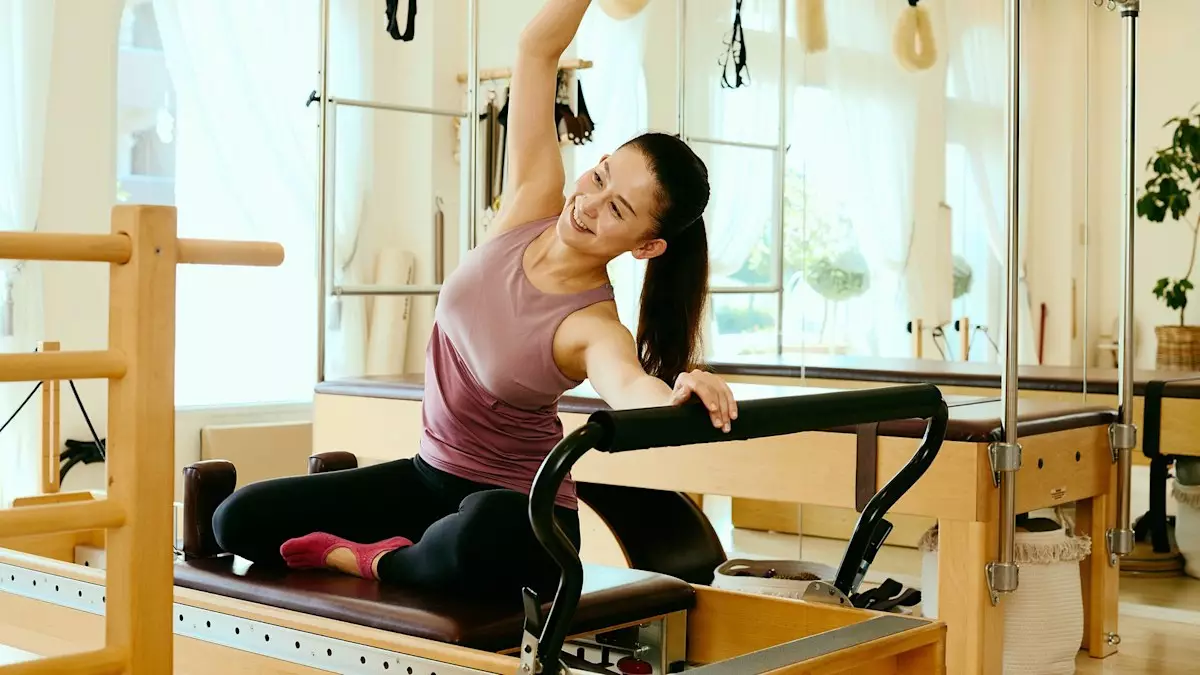At the age of 74, Carol Smith stands as a testament to the power of physical fitness in later life. Often outshining her adult daughters in terms of fitness and vitality, Carol credits a pivotal part of her well-being to Pilates. With over four decades of Pilates experience to draw from, she has embraced the discipline more fully in the last six years, witnessing remarkable changes in both her physical health and mental well-being. “Pilates allows me to engage my body in a vigorous manner, lengthening and strengthening it without fear of injury,” she states, highlighting how this practice differs from other forms of intense exercise that can sometimes precipitate unanticipated injuries as one ages.
A common concern among women as they age is the decline in upper body strength. However, Carol has found Pilates to be a formidable ally in combating this natural regression. “With Pilates, I’ve improved my core strength and enhanced my balance and mobility,” she explains. This transformation becomes crucial, especially for those who have spent decades engaged in sedentary work, such as sitting in front of a computer screen. The importance of flexibility is not lost on her; she emphasizes the mobility improvements she’s gained in her middle back, a common region prone to stiffness among office workers.
Moreover, Pilates has enabled Carol to maintain her figure and stave off the undesirable “middle-age spread.” Through consistent practice, she has become more toned and flexible, fostering an internal stability that reinforces her overall health. This regenerative journey, coupled with her commitment, illustrates the dynamic possibilities exercise holds as one transitions into their golden years.
Despite her considerable Pilates background, Carol initially felt a pang of apprehension about fully embracing classes in her 70s. The fear of losing coordination and not keeping pace with younger peers loomed large. However, her initial trepidation was met with the empowering realization that Pilates is highly adaptable. As she learned, the exercises can be modified to cater to various fitness levels and accommodate underlying injuries.
“The slower you move, the more benefits you gain,” she discovered. This understanding has fueled her confidence and transformed her sessions into not just a workout but a rejuvenating experience. “After each session, I feel taller, more energized, and surprisingly relaxed,” she shares, indicating that the low-impact nature of Pilates works wonders for anyone—especially those seeking a comprehensive body workout without the pounding associated with high-impact exercises.
The low-impact characteristics of Pilates are particularly appealing for older adults, asserts Claire Mills, founder of CORE Ldn. For many navigating the challenges of aging, Pilates stands out as a gentle yet effective form of exercise. It protects the joints while simultaneously working to enhance flexibility and promote good posture. As we grow older, maintaining bone health and density becomes increasingly critical, making strength training an essential component of any fitness regime.
Claire notes the advantages of using reformer machines, which allow for added support and consistent muscle tension. This specialization facilitates effective strengthening while minimizing the risk of joint pain. Specific muscle groups can be targeted and trained to ensure that a strong foundation is built, ultimately improving overall body function and joint support.
If you’re contemplating adopting a new exercise routine, especially in midlife, the advice from optimal aging expert Julie Robinson of Move It or Lose It rings true: approach fitness slowly and thoughtfully. The changes that accompany aging can impact the flexibility and strength of tendons and ligaments, thereby restricting joint mobility. Jumping into an intense workout regimen without proper preparation may lead to unwarranted injuries.
Instead, Julie advocates for beginning with low-impact activities such as walking, swimming, or gentle yoga. These introductory exercises allow the body to adapt to increased levels of movement while building endurance. Only when one feels ready should they introduce muscle-strengthening practices, incorporating light hand weights or resistance bands as a way to fortify the muscles surrounding their joints.
In sum, the journey of fitness is entirely personal and transformative. Carol’s story reveals how Pilates, with its adaptable nature, can serve as a powerful resource for individuals seeking longevity and resilience in their later years. It serves as a reminder that regardless of age, investing in one’s health is a journey worth undertaking.

